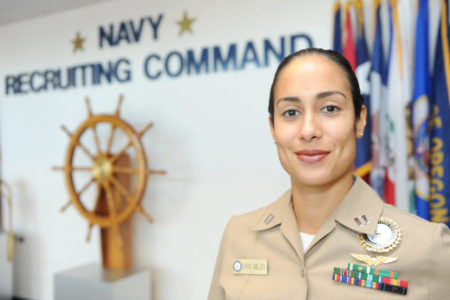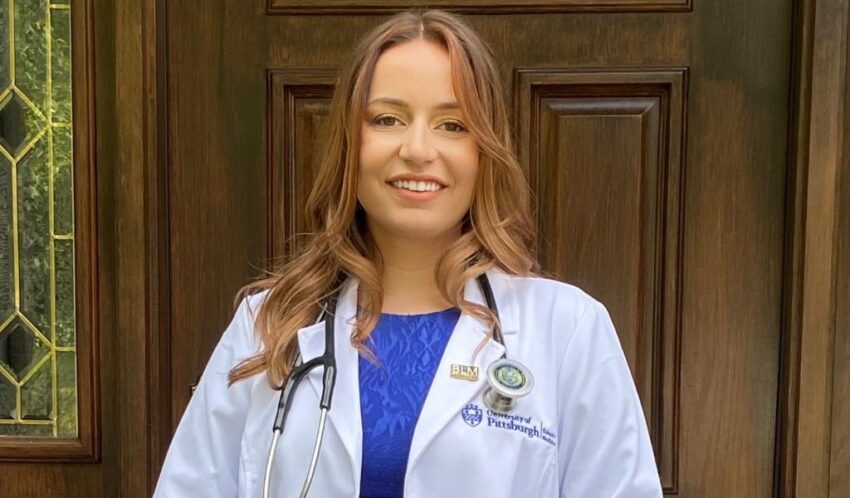
Share On Social!
Abigail Rubio, like all medical students, started her journey to be a doctor with an oath.
In the traditional Hippocratic Oath, future physicians pledge to do no harm, treat people not symptoms, and respect patient privacy. This sets the tone for medical students’ time in school, as well as their practice later.
But Rubio knew something was missing from the oath.
She and her peers at the University of Pittsburgh School of Medicine, with the guidance of their faculty advisers, wrote their own medical oath and recited it in August 2020 with new emphasis on COVID-19, health care inequities, and racism as a public health crisis.
This is part of a rising trend of medical students writing their own oaths on their ever-evolving responsibilities as doctors to address systemic racism, social justice, and health equity.
“We were given a platform to talk about things that medicine should be addressing,” said Rubio, an MD student set to graduate in 2024. “I think it is a great idea to write an oath and set a new standard for your school and for your class and acknowledge that potentially the old oath doesn’t reflect everything that we now feel medicine is and we want to be as physicians.”
Early Life Dream of Becoming a Physician
Rubio, a Cuban-heritage Latina who mainly grew up in Pittsburgh, said helping others is “something she always wanted.”
Her desire to serve others started with a splinter, in fact.
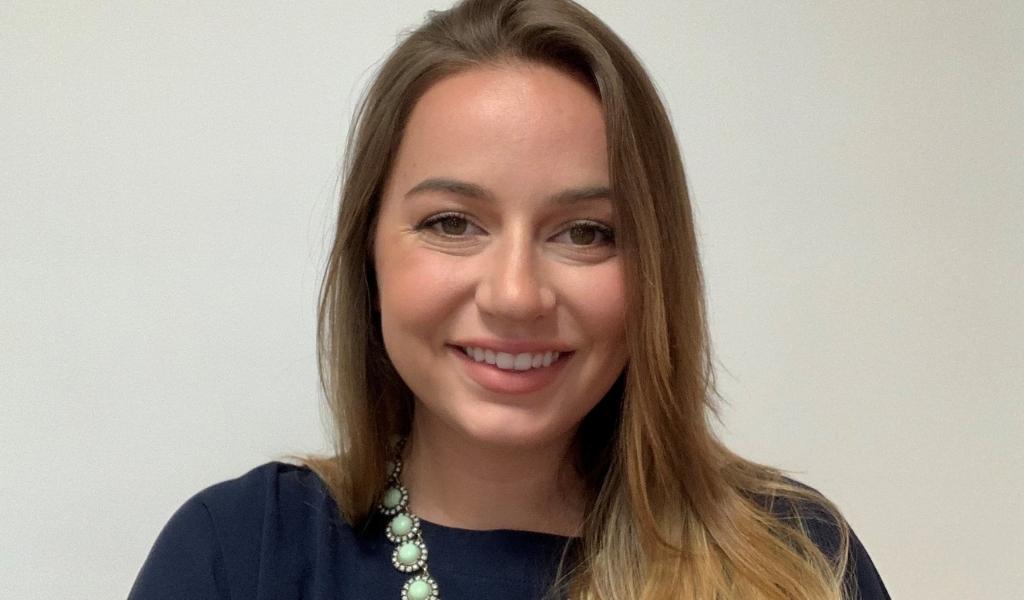
“One of the first things I remember is when you’re really little and you get splinters all the time. I was always very excited to take them out of not only myself, but my parents got one, I would beg them to let me do it with tweezers and use little sewing needles,” Rubio said. “I remember that so vividly and just really liked working with my hands. I did enjoy it.”
Rubio later worked as a lifeguard, learning first aid.
“And I kind of just kept getting jobs in some sort of health care,” she said.
But it wasn’t always easy for Rubio as a Latina growing up in Pittsburgh, where 66% of people are white and only 3.4% are Latino.
“I definitely was not surrounded by other Latinos a lot, and especially the area I grew up in just wasn’t very diverse, so I didn’t know how to like catalog it at the time,” she said.
Rubio also listened to many of her father’s stories of the challenges they experienced in moving from Cuba to the United States. At 10, barely able to speak English, he would have to translate for his parents who only spoke Spanish.
She also faced some racial/ethnic discrimination.
“Looking back at my time in high school, I realize, I was feeling very like tokenized by my peers. Not necessarily always negative, but some microaggressions here and there,” Rubio said. “In Spanish class, the fact that I could say things with an accent. I could hear them giggle and always asking for me to teach people how to dance. Just small things that I didn’t necessarily realize, but (happened) all throughout middle school, high school, and beyond.”
She persevered and earned her undergraduate degree from the University of Pittsburgh.
“I was always told that [discrimination] is just what we’ve experienced, it is normal kind of behavior. But as I got more education, like being able to actually identify what these processes were that were going on, I think opened my eyes a lot more,” Rubio said. “So I really had an identity awakening for lack of a better word, which pushed me into my master’s.”
But the hurdles weren’t over when she pursued and completed her master’s degree and decided to pursue medical school.
“All of my advisors in undergrad, told me that I couldn’t get into medical school and I should try something else,” Rubio said. “People were frequently surprised when they found out I was intelligent, especially I know this is common for females in STEM, especially Latinas in STEM, just not being taken seriously. Once they saw my research, saw my grades, saw my writing, they saw that I could do well. I always found that, like, very disheartening.”
But she applied and got into the University of Pittsburgh School of Medicine.
As she began her work to become a doctor with her peers, it didn’t take long to see that the typical medical students’ oath wouldn’t be right for them.
Why the Hippocratic Oath Needed an Update
The Hippocratic Oath, which famously urges physicians to “abstain from whatever is deleterious and mischievous,” dates as far back as 400 B.C.
“The original text is attributed to Hippocrates, a Greek physician commonly credited with beginning the practice of medicine as a rational science,” according to Laura McPherson of Northeastern University Nursing. “Hippocrates differed from some of his contemporaries and the practitioners who came before him in taking a holistic view of medicine, effectively beginning the practice of whole-person care.”
Western medical schools started using the Hippocratic Oath in the 1700s.
The modern version, the Declaration of Geneva, was adopted by the World Medical Association in 1948.
Today, reciting the Declaration of Geneva is a key part of the white coat ceremony for incoming students in medical, nursing, and physician assistant programs.
The ceremony signifies the beginning of their journeys to achieve the long white lab coat, a well-recognized symbol of respect and professionalism. During the ceremony, students get a short white lab coat and recite a class oath or pledge.
“The overarching theme of the Hippocratic Oath and of its modern descendants is the idea that the individual reciting the pledge is making a personal dedication to ethical and committed care,” McPherson wrote.
But Rubio and others noticed that the oath left out important health and social issues, such as racism and health inequities and disparities.
Dr. Chenits Pettigrew Jr. felt the same way.
Moving Away from the Traditional Hippocratic Oath
Pettigrew Jr. is the associate dean for diversity, equity, and inclusion University of Pittsburgh School of Medicine.
He has faced a lot of bias and discrimination in his own journey.
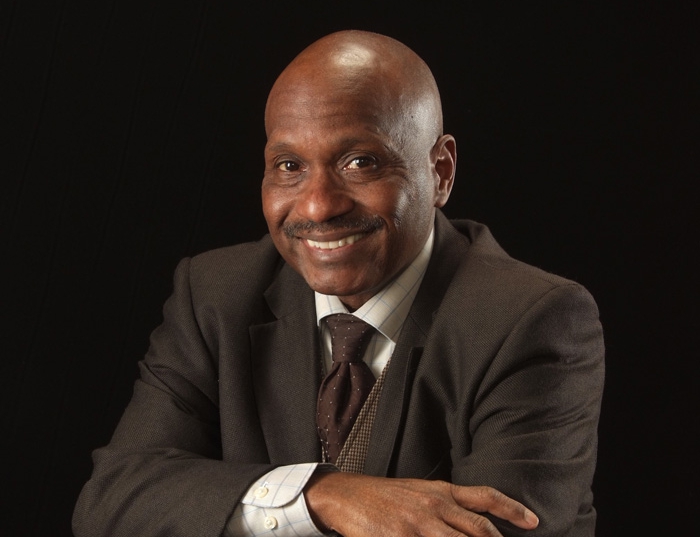
“If you look at my first and last name, it’s difficult to tell what I’m going to look like when I walk in the door. And often as you go through the process of applying for jobs, looking for opportunities, I am often getting interviews … so there have been a number of businesses where interviews were carried out. But they certainly weren’t carried out with any degree of enthusiasm after they saw what I looked like physically. And it’s easy to tell when that is occurring. And that certainly has been something that has happened,” he said.
Pettigrew Jr. wanted to give incoming medical students the opportunity to truly think about their role in delivering fair, just health care.
“Part of the medical school experience requires sort of a transformation of the student physician, from someone who’s very smart in science, to someone who really takes on the values and beliefs of the medical profession over the course of its history,” he said. “And in order to do that, you want students to really think about what it is that they have committed their lives to. You want them to understand what is valued, and what behaviors are important to emulate.”
Writing their own medical oaths could help the students engage in critical thinking, analysis, and discussion about the transformation from student to doctor.
“We felt that the oath gave us the appropriate launching point, to start this sort of transformation process,” Pettigrew Jr. said.
So Rubio and her peers received an introduction on what oaths are about.
“We gave them insight into sort of the expectations that we have, we gave them a list of what we feel the characteristics and behaviors and the things that graduates value and what it is that we are trying to achieve in the process of this education, which is to give them the knowledge and give them the skills to be a physician,” Pettigrew Jr. said.
“But at the same time, we wanted to be sure that they understood how to be a physician, and what it meant to be a physician. And it’s really an ongoing layering of experiences across time as you go from being a medical student to a trainee to an attending physician. We wanted to start the process, and we support that process in a number of ways during orientation, and we supported throughout the curriculum itself, ethics, law and professionalism.”
Now the students had to work on writing their oath.
Writing their Own Medical School Oath
Even before medical school orientation week, Pettigrew Jr. and the other school administrators assigned the oath-writing activity to incoming students in August 2020.
“We give them resource material, we establish the process, they meet in groups, they get to know each other, they talk about what they value, why they are in medicine, what they think medicine does, etc.,” he said. “So we meet in our group, I’m talking, you’re talking, and we volunteer, or we’re elected to be the representatives of our group, to go into the writing of the oath itself.”
Rubio was among a 12-student committee who wrote the oath for the Class of 2024.
Students spent about 50 hours writing the oath, from brainstorming to writing and revising. They worked with upper-class student mentors. They discussed how to reference groups, what terminology to use, and how to keep it concise.
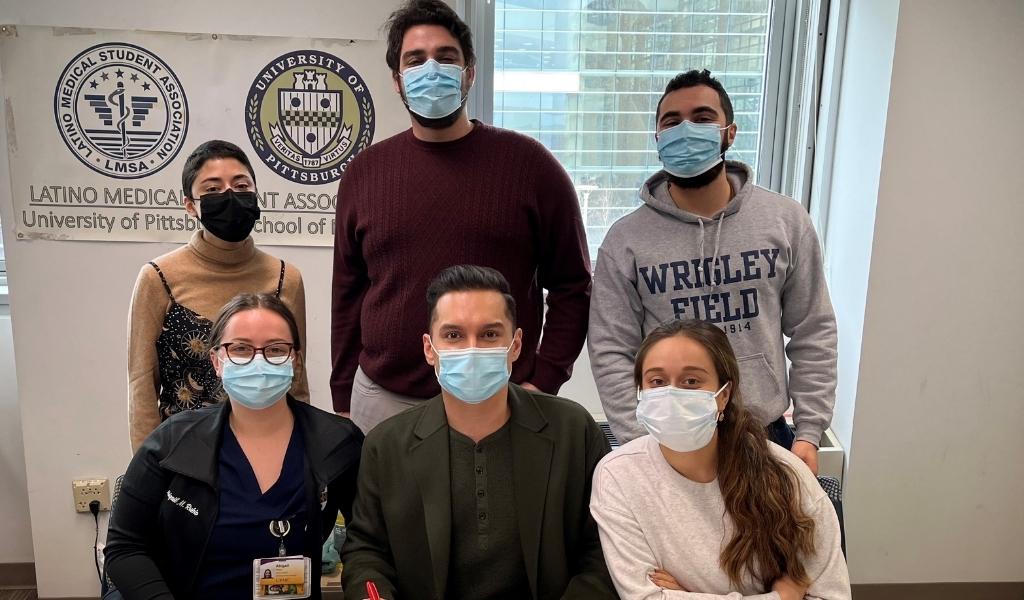 In the end, they hope their oath fills in gaps the Hippocratic Oath missed.
In the end, they hope their oath fills in gaps the Hippocratic Oath missed.
“You should be understanding your patients. You should be understanding their backgrounds. You should be understanding their lived experiences and how these might affect them and their interactions with you, their interactions with others, and even their interactions with their environment. That all will change what their health looks like,” Rubio said. “Looking more at an individual and seeking understanding that racism is a public health crisis and this is something that, as physicians, we should care about.”
Pettigrew Jr. noted the students focused on multiple vulnerable groups.
“One of the essential pillars was this issue of advocacy for those who are underserved and underrepresented in, in healthcare, both from the standpoint of receiving care, and from the standpoint of getting a focus on the needs that they may have as a community. And so it wasn’t only just black, indigenous and so and so forth, but it was also the LGBT community and others who might not necessarily have a voice,” he said.
After drafting the new oath, the students presented it to the Class of 2024 students for additional input. Then they worked with faculty to finalize a draft.
“For so long, medicine has historically ignored abuses and wrongdoings against black and brown bodies, and anyone that identifies as BIPOC,” Rubio said. “So it was important for us to kind of change that narrative of medicine to kind of start a new leaf, set a new standard that we want medicine to acknowledge this. We don’t want medicine to be racist, we want medicine to be welcoming of everyone.”
Students then officially presented the oath to Anantha Shekhar, senior vice chancellor for the health sciences and John and Gertrude Petersen Dean of the School of Medicine.
Shekhar gave the final approval.
“At Pitt, we challenge our students to change the world—and the future of medicine—for the better. This class didn’t wait,” said Shekhar, according to PittWire. “Their class oath, the first of its kind in our program’s history, speaks to the power and importance of clinical care and research in creating a more inclusive and just society, and I am excited to watch them put this promise into practice.”
The Oath for the Class of 2024
Rubio and her Class of 2024 peers recited the new oath at their white coat ceremony at University of Pittsburgh School of Medicine in August 2020.
Here is the full oath:
As the entering class of 2020, we start our medical journey amidst the COVID-19 pandemic and a national civil rights movement reinvigorated by the killings of Breonna Taylor, George Floyd and Ahmaud Arbery. We honor the 700,000+ lives lost to COVID-19, despite the sacrifices of health care workers.
We recognize the fundamental failings of our health care and political systems in serving vulnerable communities. This oath is the first step in our enduring commitment to repairing the injustices against those historically ignored and abused in medicine: Black patients, Indigenous patients, Patients of Color and all marginalized populations who have received substandard care as a result of their identity and limited resources.
Acknowledging the privilege and responsibility that come with being a physician, I take this oath as a call to action to fulfill my duty to patients, to the medical profession and to society.
Thereby, I pledge as a physician and lifelong student of medicine:
I will support and collaborate with my colleagues across disciplines and professions, while respecting the patient’s vital role on the health care team.
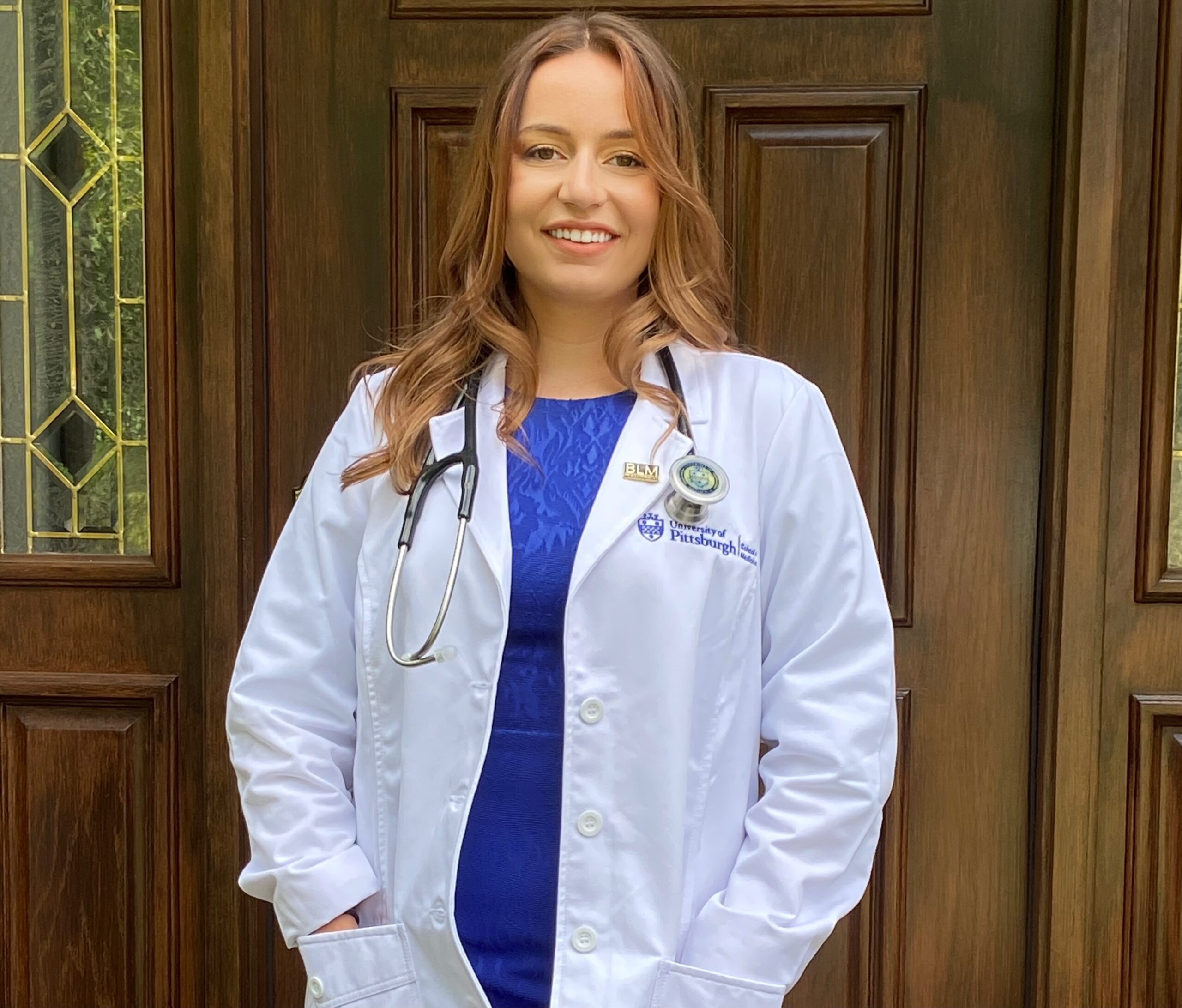 I will honor my physical, mental and emotional health so as to not lessen the quality of care I provide.
I will honor my physical, mental and emotional health so as to not lessen the quality of care I provide.
I will carry on the legacy of my predecessors by mentoring the next generation of diverse physicians.
I will recognize the pivotal role of ethical research in the advancement of medicine and commit myself to endless scholarship with the ultimate goal of improving patient care.
I will care for my patients’ holistic well-being, not solely their pathology. With empathy, compassion and humility, I will prioritize understanding each patient’s narrative, background and experiences while protecting privacy and autonomy.
I will champion diversity in both medicine and society, and promote an inclusive environment by respecting the perspectives of others and relentlessly seeking to identify and eliminate my personal biases.
I will be an ally to those of low socioeconomic status, the BIPOC community, the LGBTQIA+ community, womxn/women, differently-abled individuals and other underserved groups in order to dismantle the systemic racism and prejudice that medical professionals and society have perpetuated.
I will educate myself on social determinants of health in order to use my voice as a physician to advocate for a more equitable health care system from the local to the global level.
I will restore trust between the health care community and the population in which I serve by holding myself and others accountable, and by combating misinformation in order to improve health literacy.
In making this oath, I embrace the ever-changing responsibilities of being a physician and pledge to uphold the integrity of the profession in the clinic and beyond.
“It brought many of the attending faculty members and administrators to tears at that point,” Pettigrew Jr. said. “And what you would hear from the class and class members was that they did not realize the power of the words that they had put together.”
“From the standpoint of the experiences of students who are underrepresented in medicine, like Abigail [Rubio], they could feel that their class was embracing the responsibility to make sure that the care of these communities was as good as it could be. And that they were much more culturally sensitive and committed to learning more about their patients.”
Reflecting on the New Oath
As the Class of 2024 at the University of Pittsburgh School of Medicine continues their education, they have several opportunities to reflect on their new oath.
They also get a badge with their oath on it.
“As they began to see patients, we’re always asking them to reflect on their own oath and what it meant to them,” Pettigrew Jr. said. “And they are. The students get to see that this is not just an exercise, just to get them to produce something. But this is an exercise for them to reflect. And critically think about what it really means to be a physician and have the responsibility of patients’ lives in their hands.”
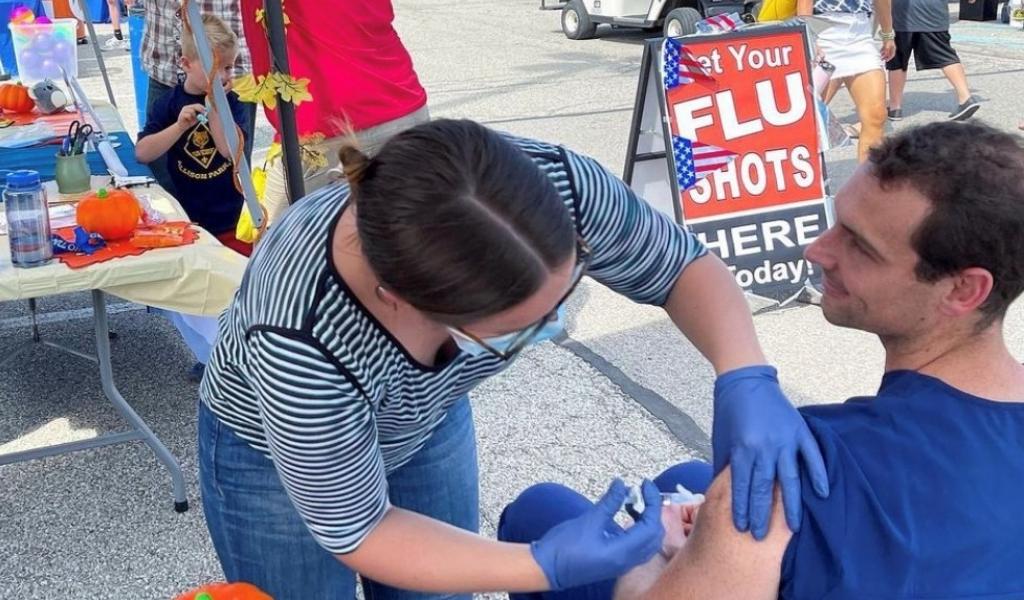 The students will recite their new oath again as they go into their clinical education their third year, and a final time at graduation.
The students will recite their new oath again as they go into their clinical education their third year, and a final time at graduation.
“I think they were all very much impacted by the power of the words and what it committed them to be about,” Pettigrew said. “Because sometimes, you know, if I’m reciting the Hippocratic Oath, you know the language and the terminology of the number of translations that it has had, it isn’t necessary. I mean, I will do it. But I might not think about it at the time doing it. And we wanted to give them something that they would think about.”
“I would say, as I observe the experience, and the people that facilitated it with me, the students … I think they were all struck by the power of this oath. And it includes all the folks that we should pay attention to, as well as its focus on their commitment to always be the best that they can be when they’re taking care of patients.”
Rubio said she hopes the oath helps people look at medicine differently.
“Look at potentially a new generation of medicine that is hopeful, that is accepting and is seeking to do better in trying to oust these wrongs, because I think a lot of patients don’t necessarily always have a positive experience in medicine, and I know for some that could be a reason against going or being a part of it in any amount,” she said. “I think it’s really nice to read this oath and know that is written and believed by those who will try and take care of absolutely everyone, regardless of what you look like, what your race is, what your ethnicity is.”
Future Oaths
Following Rubio and her Class of 2024 peers, each incoming Pitt Med class will be invited to write its own unique oath to help establish their professional identities as physicians.
Pettigrew Jr. has two main suggestions for other medical schools or students who want to make a systemic change and write their own medical school oaths.
First, take a contemporary reflection on their covenant as physicians-to-be as they go through the process.
Second, understand you’re not discarding traditions, but reformulating them, and you’ll have to negotiate with your own institution to determine how to apply and sustain them.
“They should be I think, respectful of the fact that they are not replacing any of the traditions that are practicing in medicine, they are giving their contemporary focus and their extension and expression of how these things will apply in in the world, the practice that they see,” he said. “It’s really about putting this in a contemporary context through their through their idealistic eyes, and having a discussion with your peers, so they find out some of the differences, or get people to buy into what it is that they want to focus on.”
Rubio, who has now become president external of the university’s chapter of the Latino Medical Student Association, had a good suggestion, too.
“I think it would be a great idea to bring the topic up to administration – find the people on administration that can be your champions,” she said. “The more I go in education, I find it’s really about finding people that’ll help you do the work. I think so much of, especially being Latino, so much of it is done on our own. For me, there’s no one else in my family that’s a physician. They didn’t know about applying to medical school or what medical schools like.”
“I think a lot of it is understanding that not everything can be done on your own, so getting the faculty that can help is always great.”
By The Numbers
3
Big Excuses
people use to justify discriminatory behavior
This success story was produced by Salud America! with support from the Robert Wood Johnson Foundation.
The stories are intended for educational and informative purposes. References to specific policymakers, individuals, schools, policies, or companies have been included solely to advance these purposes and do not constitute an endorsement, sponsorship, or recommendation. Stories are based on and told by real community members and are the opinions and views of the individuals whose stories are told. Organization and activities described were not supported by Salud America! or the Robert Wood Johnson Foundation and do not necessarily represent the views of Salud America! or the Robert Wood Johnson Foundation.



